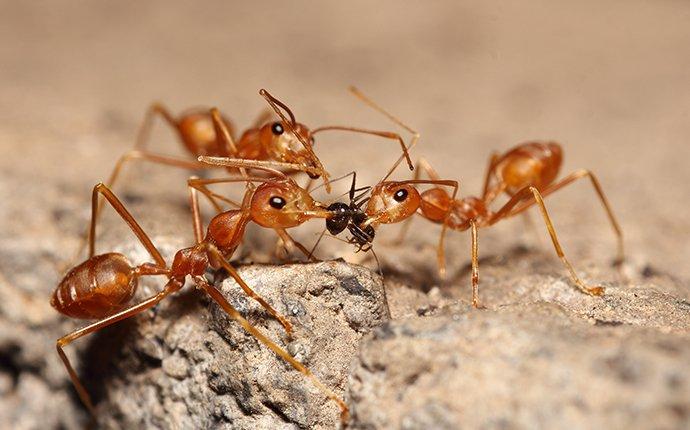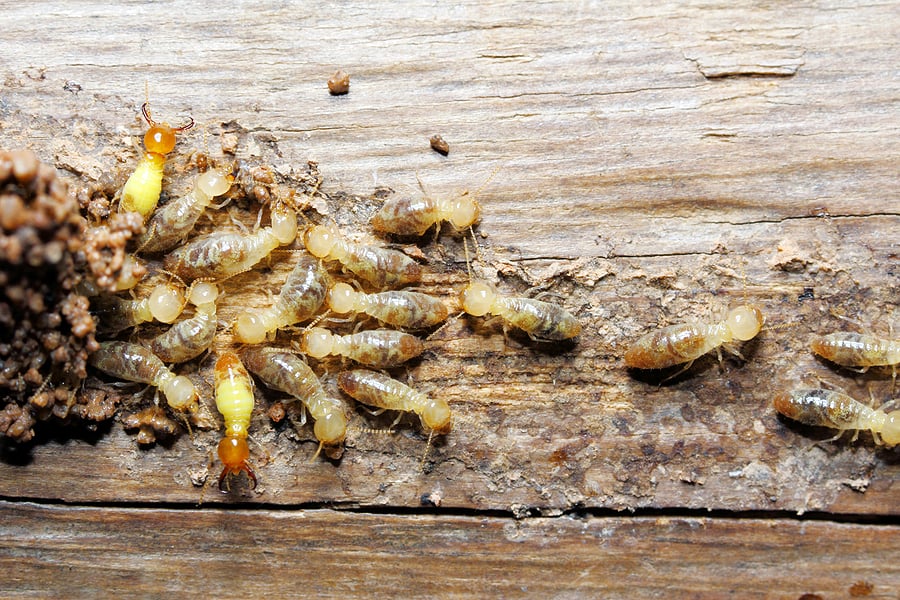Why Pick Our Termite Control Services: Specialist Solutions for Effective Defense
Why Pick Our Termite Control Services: Specialist Solutions for Effective Defense
Blog Article
Environmental Impact of Pest Control: Harmonizing Performance With Sustainability
The ecological impact of pest control is a crucial issue that requires a fragile equilibrium in between accomplishing efficiency in handling bugs and making certain sustainability of our ecosystems. As we make every effort to safeguard our plants, homes, and health and wellness from the risks positioned by pests, the methods we use can inadvertently harm the atmosphere. From the use of damaging chemicals that leak right into our dirt and water to the unplanned consequences on non-target species, the repercussions of conventional bug control methods are far-ranging. There are emerging approaches that offer hope for an extra sustainable method to pest administration. These options not just aim to deal with the prompt insect problems but likewise consider the long-term wellness of our earth.
Hazardous Chemicals in Insect Control
The utilization of dangerous chemicals in pest control positions significant environmental and health and wellness risks that call for mindful factor to consider and mitigation techniques. Chemicals, herbicides, and insecticides are typically used to remove parasites, yet their prevalent application can result in unplanned repercussions. These chemicals can infect soil, water sources, and the air, influencing not only the targeted insects however additionally advantageous insects, wild animals, and people.

To resolve these risks, incorporated insect management (IPM) techniques are being promoted as a much more sustainable option. IPM includes a mix of techniques such as organic control, habitat control, and the targeted use chemicals as a last option (ant control albemarle nc). By adopting an alternative method to pest control, we can lessen the environmental and health effects connected with hazardous chemicals while effectively managing pest populaces
Influence On Non-Target Species
Considering the unplanned effects of bug control methods, the effect on non-target varieties is an important element that calls for thorough analysis. While pest control steps aim to target certain pests, various other organisms in the ecological community might be accidentally affected. Non-target varieties, including valuable insects, birds, creatures, and also plants, can endure straight or indirect damage from pesticide applications or organic control approaches.
Pesticides created to deal with a particular bug bug may harm pollinators like bees or all-natural killers such as ladybugs. Organic control agents, if not species-specific, can posture dangers to unintentional targets, interrupting the environmental equilibrium.
To minimize the influence on non-target varieties, integrated parasite monitoring (IPM) methods that emphasize an alternative strategy to pest control are suggested. These techniques prioritize the usage of ecologically friendly practices, decreasing injury to useful organisms while properly handling pest populations. Performing detailed threat analyses and keeping track of the results of bug control efforts are necessary actions in securing non-target species and promoting total environment health and wellness.
Soil and Water Contamination
Unintended ecological consequences of parasite control techniques extend past affecting non-target varieties, with considerable implications for dirt and water contamination. Pesticides, herbicides, and chemical fertilizers made use of in bug control can seep right into the dirt and contaminate groundwater, presenting a threat to both marine and terrestrial environments. Soil contamination can disrupt the equilibrium of microbes vital for vitamins and mineral biking and plant growth, bring about decreased soil fertility and efficiency. Additionally, these chemicals can continue the environment for extensive durations, building up in the dirt and possibly entering the food web.
Water contamination is one more vital problem connected with parasite control techniques. Runoff from agricultural fields treated with chemicals can lug these chemicals right into close-by water bodies, affecting marine microorganisms and water quality. Contaminants in water resources can have significant consequences, influencing not just water life however additionally human health and wellness through the intake of infected water or marine microorganisms. To minimize dirt and water contamination from parasite control activities, integrated bug administration approaches that focus on sustainability and lessen chemical inputs are crucial.
Air Air Pollution From Chemical Usage
Direct exposure to air-borne chemicals during agricultural applications postures a significant concern for air pollution control actions. They can volatilize right into the air and form volatile organic compounds (VOCs) and other air-borne pollutants when chemicals are splashed onto plants - ant control services. These chemicals can add to the development of ground-level ozone, a significant part of smoke that can have harmful impacts on human health, plant productivity, and general air top quality. Furthermore, chemical drift, where pesticides are lugged by the wind to unexpected areas, can cause the contamination of nearby ecosystems and water bodies.

Methods for Lasting Insect Control
In the world of agricultural methods, implementing sustainable bug control strategies is extremely important for keeping eco-friendly balance and guarding crop yields. Lasting pest control highlights using ecologically pleasant approaches to manage bug populations efficiently while decreasing damage to non-target microorganisms and ecosystems. Integrated Bug Management (IPM) is a commonly embraced method that incorporates organic, social, physical, and chemical control techniques to attain lasting insect administration remedies.
Plant rotation and diversity are also efficient strategies to interfere with pest life cycles and produce much less positive conditions for bugs to thrive. Ultimately, by incorporating these lasting parasite control techniques, farmers can attain an equilibrium in between pest management performance and ecological stewardship.
Verdict
Finally, the ecological effect of bug control methods need to be carefully thought about to stabilize effectiveness with sustainability. Harmful chemicals utilized in pest control can bring about soil and water contamination, air contamination, and damage non-target species - ant control. It basics is crucial to apply sustainable parasite control approaches to minimize these unfavorable results on the atmosphere and advertise a much healthier ecological community for future generations
By taking on an all natural strategy to pest control, we can reduce the ecological and health and wellness impacts associated with harmful chemicals while properly taking care of pest populaces.

To alleviate the air contamination caused by pesticide usage, it is important to take on integrated bug management approaches that prioritize the usage of non-chemical pest control techniques, such as plant rotation, natural killers, and resistant plant varieties. Lasting pest control highlights the usage of environmentally pleasant methods to take care of pest populaces successfully while lessening damage to non-target organisms and ecological communities. Integrated Insect Management (IPM) is an extensively adopted technique that integrates biological, social, physical, and chemical control techniques to attain long-lasting insect monitoring options.
Report this page